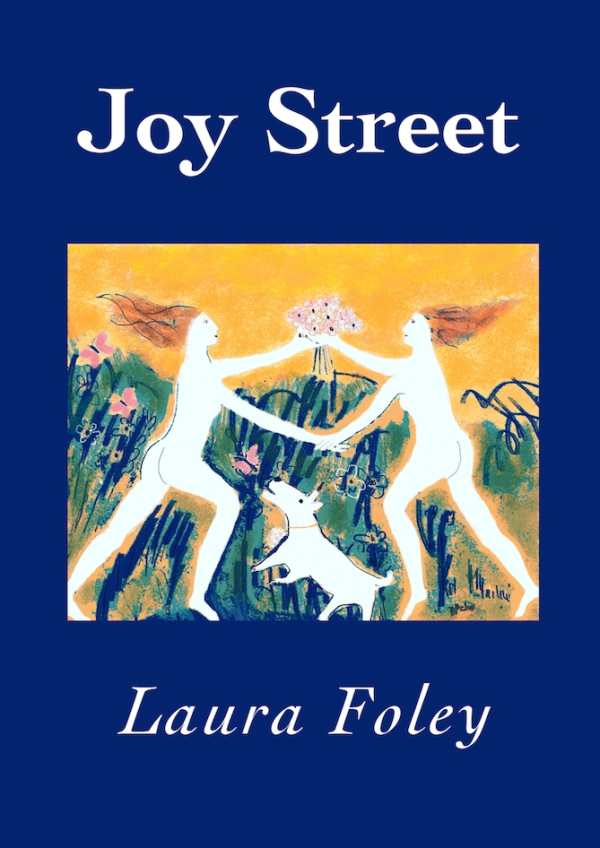Joy Street
Foley takes command of the meaning behind her words, bending and mastering them with her positive outlook on life.
Laura Foley’s fourth poetry collection, Joy Street, is a slender volume that can be easily read all at once, then immediately perused again for favorite passages. The award-winning author of The Glass Tree writes of her life since she was widowed and acknowledged her own queerness. Every poem in the book is suffused with celebration and wonder, even when the subject matter is dark.
The collection’s title comes from a line in her poem “No GPS Necessary,” which in itself is an excellent example of the spirit of the book—to find that beautiful shimmer of light even in uncertainty. In the poem, Foley has taken her partner, Clara, to the hospital for brain surgery: “we walk the antiseptic corridors, / and she’s wheeled away, / as I return to Joy Street, / where yesterday / she said those words to me.” What are those words? Why, of course they are “I love you.” Melancholy and grief cannot survive when love has firmly established itself. In the poem “Like Teenagers,” during Clara’s recovery, she and Foley stay positive, even “when we knew she could go at any / moment, we had a good time: put calming music on, held hands.” They giggle and kiss, not only cherishing but engaging in their shared life.
Throughout the collection, Foley’s poems touch upon changes large and small in her world with a delighted awe. Living in a new home with a new dog and partner (mirrored in artist Barbara Perrine Chu’s cover art), and with her children grown, Foley opens this chapter of her life with eyes wide open. Self-acceptance permeates her work. So does an appreciation for the quirks of aging. In “Rare,” she admits that she has always loved her freckles, seeing her body as “sun-kissed.” That changes when “a doctor freezes / my skin damage, blistering / a piece of me away, / changing how I frame it.” With wry humor, she goes on to point out other bodily changes—her distorted feet are “medieval.” Her wispy hair, described as “fine” by a hairdresser, is dressed up in Foley’s view as “excellent, as in fine wine.” The poet takes command of the meaning behind her words, bending and mastering them.
Foley favors blank verse and a narrative style. Rarely are the poems more than one or two stanzas long. Overall, the collection’s tone changes only subtly—gradations of brightness. Even her darkest poems have a positive spin. In “Hindsight,” Foley studies a photo of her father taken after his release as a POW for the Japanese. He’d been starved and tortured, but it’s his “survivor eyes, / just like mine” that ultimately demand recognition. Strength of will and courage triumph over adversity. All of the poems are brief and spare—none more than a page long—yet the content is full of deep feeling. Readers will not regret spending time on Foley’s street of joy.
Reviewed by
Olivia Boler
Disclosure: This article is not an endorsement, but a review. The publisher of this book provided free copies of the book and paid a small fee to have their book reviewed by a professional reviewer. Foreword Reviews and Clarion Reviews make no guarantee that the publisher will receive a positive review. Foreword Magazine, Inc. is disclosing this in accordance with the Federal Trade Commission’s 16 CFR, Part 255.

